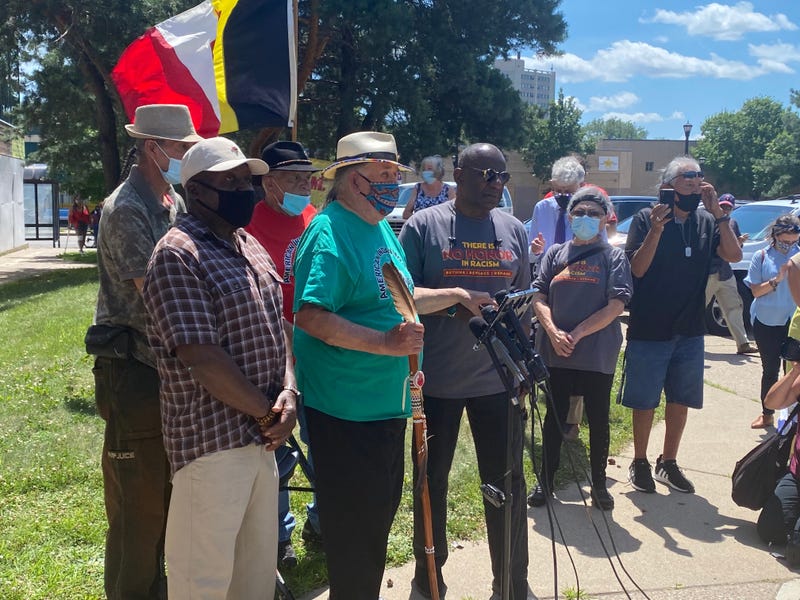
Washington’s NFL team is changing its name from the Redskins, a mascot long criticized as racist. In Minneapolis, it’s a “glorious day” to celebrate heritage and what they hope will be more victories in the future.
The impact of the name change extends beyond the DMV and beyond sports right to Minneapolis. This is where the American Indian Movement spawned decades ago, where activists have long been protesting Washington’s games against the Vikings. One remembered a frigid experience at Super Bowl 26 between Buffalo and Washington. The protests started with a few dozen and grew to thousands in November 2014.
Clyde Bellecourt, now 84, has been there since the beginning as the co-founder of the AIM. Once corporate partners started pressuring the franchise he thought this could be it.
“When you erase, when you keep our people stuck as relics of the past, when you don’t acknowledge that we are a contemporary people who are still here, who are very much alive and will always be here, the policies you pass, the things you do to us and not with us can be pushed aside -- the budgets, the investment sin our communities -- it’s too easy to do,” she said.
The name change is a victory, but for longtime activists, it was a symbol of the importance of resilience and intersectionality. Bellecourt and civil rights activist Spike Moss have protested side-by-side for more than 40 years fighting for rights for Black Americans and Native Americans.
“I think because of the Native Americans’ courage, African-Americans had to match that and go forward and fight for this issue,” Moss said. “It is hard to look at Clyde and his vision and not tear up knowing that he had the courage and the strength to bring us together, to stand up and right this great wrong.”
So while local activists celebrate, they say the battle is not over for Indigenous rights. They hope this awareness leads to investment in native communities.
“Our children and our children’s children will be told the truth,” Flanagan said. “The truth about who they are, that fact that we have always been here, we are still here, and we will remain here."
